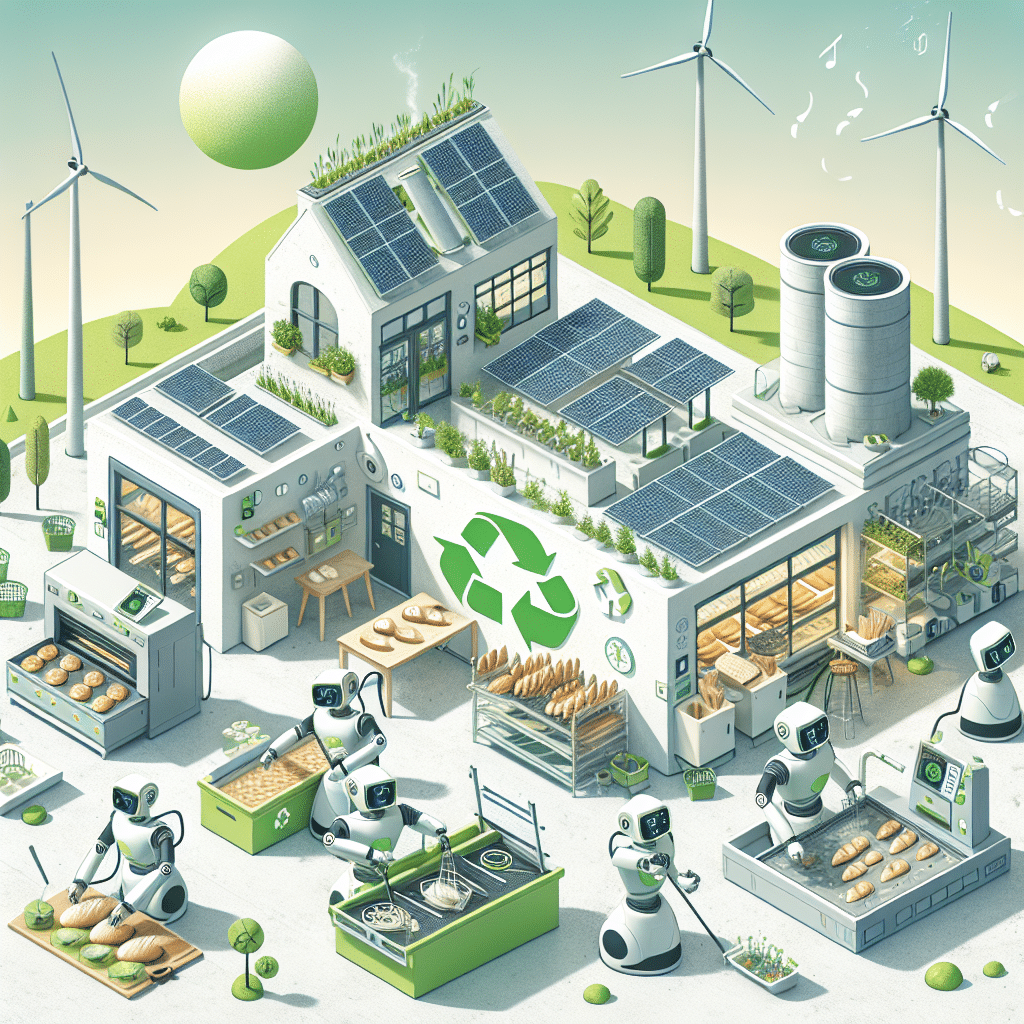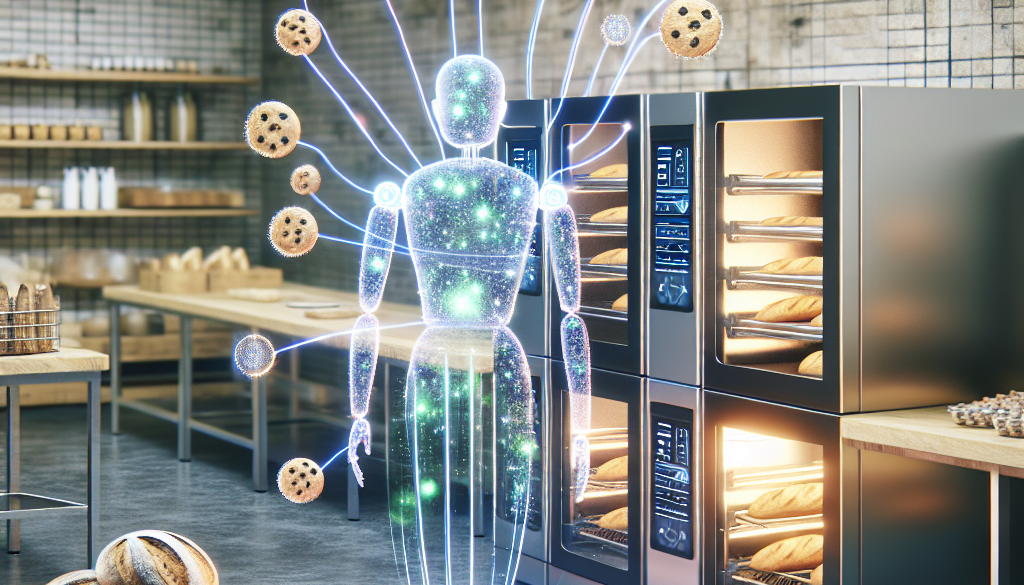AI Making Baking Manufacturing a Sustainable Process
-
Table of Contents
- AI Revolutionizing Baking Manufacturing for Enhanced Sustainability
- The Rise of AI in Baking Manufacturing
- Energy Conservation through Smart AI Solutions
- Minimizing Waste with Precision and Predictive Analytics
- Supply Chain Sustainability Enhanced by AI
- Ensuring Quality and Consistency with AI
- Case Studies: AI in Action
- Challenges and Considerations
- Conclusion: Embracing AI for a Sustainable Future
- ETprotein: Your Partner for Sustainable Protein Solutions
AI Revolutionizing Baking Manufacturing for Enhanced Sustainability

The baking industry, a staple of food manufacturing, is undergoing a significant transformation. With the integration of Artificial Intelligence (AI), the sector is poised to become more sustainable, efficient, and innovative. This article delves into how AI is making baking manufacturing a sustainable process, exploring the benefits and advancements that are shaping the future of this industry.
The Rise of AI in Baking Manufacturing
AI has made its way into various sectors, and the baking industry is no exception. From optimizing supply chains to reducing waste, AI is revolutionizing the way baked goods are produced. Here are some of the ways AI contributes to sustainability in baking manufacturing:
- Energy Efficiency: AI systems can predict peak times for energy usage and adjust production schedules accordingly to reduce energy consumption.
- Waste Reduction: Machine learning algorithms analyze production data to minimize overproduction and optimize ingredient usage, cutting down on waste.
- Supply Chain Optimization: AI enhances supply chain transparency and efficiency, ensuring that resources are used responsibly and sustainably.
- Quality Control: AI-powered vision systems detect product defects early, preventing resource wastage and ensuring consistent quality.
Energy Conservation through Smart AI Solutions
One of the most significant environmental challenges in baking manufacturing is energy consumption. AI is tackling this issue head-on by enabling smart energy management systems. These systems can learn and predict the best times to operate heavy machinery, thereby reducing peak load and leading to substantial energy savings. According to a report by the Carbon Trust, AI could help reduce global greenhouse gas emissions by up to 4% by 2030, which is equivalent to the 2030 annual emissions of Australia, Canada, and Japan combined.
Minimizing Waste with Precision and Predictive Analytics
Food waste is a critical concern in the baking industry. AI-driven predictive analytics can forecast demand more accurately, ensuring that bakeries produce closer to the required amount of goods. This precision reduces surplus and diminishes the carbon footprint associated with waste disposal. The Food and Agriculture Organization of the United Nations estimates that if food waste were a country, it would be the third-largest emitting country in the world, highlighting the importance of waste reduction strategies.
Supply Chain Sustainability Enhanced by AI
AI’s role in supply chain management is pivotal for sustainability. By analyzing vast amounts of data, AI can optimize routes for delivery trucks, reducing fuel consumption and emissions. Furthermore, AI can assist in sourcing ingredients from sustainable suppliers, ensuring that the entire production process aligns with eco-friendly practices.
Ensuring Quality and Consistency with AI
Quality control is another area where AI is making a significant impact. Through advanced image recognition and machine learning, AI systems can detect even the slightest deviations in product quality. This not only ensures that consumers receive consistent products but also reduces the need for rework or disposal of substandard goods, further contributing to sustainability.
Case Studies: AI in Action
Several baking manufacturers have already adopted AI to improve sustainability. For instance, a European bakery used AI to optimize its heating process, resulting in a 20% reduction in energy consumption. Another example is a US-based bakery that implemented AI for inventory management, which led to a 30% decrease in product waste.
Challenges and Considerations
While AI offers numerous benefits, there are challenges to its implementation, such as the need for significant initial investment and the requirement for skilled personnel to manage and interpret AI systems. Additionally, there is a need to ensure that AI algorithms are transparent and do not perpetuate biases.
Conclusion: Embracing AI for a Sustainable Future
The integration of AI into baking manufacturing is not just a trend; it’s a necessary evolution towards sustainability. By enhancing energy efficiency, reducing waste, optimizing supply chains, and ensuring product quality, AI is helping the baking industry meet the growing demand for sustainable practices. As technology continues to advance, we can expect even more innovative solutions to emerge, further solidifying AI’s role in creating a greener future for food production.
ETprotein: Your Partner for Sustainable Protein Solutions
In line with the sustainable practices promoted by AI in baking manufacturing, ETprotein offers a range of eco-friendly protein products that can complement the efforts of the baking industry. Their organic bulk vegan proteins and L-(+)-Ergothioneine are produced with sustainability in mind, ensuring that your baked goods not only taste great but also contribute to a healthier planet.
Whether you’re looking for non-GMO, allergen-free protein sources or high-purity L-(+)-Ergothioneine for your products, ETprotein has you covered. Their commitment to quality and sustainability makes them an ideal partner for baking manufacturers looking to enhance their offerings with nutritious and environmentally responsible ingredients.
About ETprotein:
ETprotein, a reputable protein and L-(+)-Ergothioneine (EGT) Chinese factory manufacturer and supplier, is renowned for producing, stocking, exporting, and delivering the highest quality organic bulk vegan proteins and L-(+)-Ergothioneine. They include Organic rice protein, clear rice protein, pea protein, clear pea protein, watermelon seed protein, pumpkin seed protein, sunflower seed protein, mung bean protein, peanut protein, and L-(+)-Ergothioneine EGT Pharmaceutical grade, L-(+)-Ergothioneine EGT food grade, L-(+)-Ergothioneine EGT cosmetic grade, L-(+)-Ergothioneine EGT reference grade and L-(+)-Ergothioneine EGT standard. Their offerings, characterized by a neutral taste, non-GMO, allergen-free attributes, with L-(+)-Ergothioneine purity over 98%, 99%, cater to a diverse range of industries. They serve nutraceutical, pharmaceutical, cosmeceutical, veterinary, as well as food and beverage finished product distributors, traders, and manufacturers across Europe, USA, Canada, Australia, Thailand, Japan, Korea, Brazil, and Chile, among others.
ETprotein specialization includes exporting and delivering tailor-made protein powder and finished nutritional supplements. Their extensive product range covers sectors like Food and Beverage, Sports Nutrition, Weight Management, Dietary Supplements, Health and Wellness Products, and Infant Formula, ensuring comprehensive solutions to meet all your protein needs.
As a trusted company by leading global food and beverage brands and Fortune 500 companies, ETprotein reinforces China’s reputation in the global arena. For more information or to sample their products, please contact them and email sales(at)ETprotein.com today.












